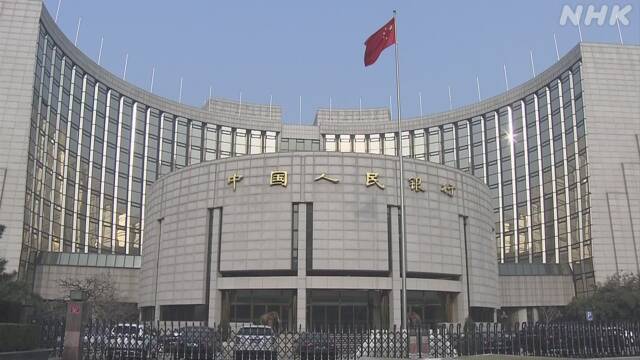The central bank of China has announced that it will reduce the ratio of funds deposited from financial institutions, the "reserve requirement ratio," and implement additional monetary easing measures to supply the market with 10 trillion yen in Japanese yen.
With the spread of the new coronavirus infection in various parts of Japan such as Shanghai, the economy is being hit, and the aim is to support the financing of companies.
The Central Bank of China, the People's Bank of China, announced on the 15th that it will implement additional monetary easing measures to reduce the reserve requirement ratio by 0.25% from the 25th of this month.
The reduction has been since December last year, and financial institutions in rural areas are planning to reduce it by 0.5%.
The reserve requirement ratio is the ratio of funds that the central bank forcibly deposits from financial institutions, and if it is lowered, it is expected that the amount of cash on hand at financial institutions will increase, leading to an increase in loans.
It is said that this reduction will supply about 530 billion yuan, 10 trillion yen in Japanese yen to the market, and strict restrictions on going out in Shanghai, the largest economic city, will be imposed, and new coronavirus infections will be introduced in various parts of the country. The aim is to support the cash flow centered on small and medium-sized enterprises and micro enterprises as the economy spreads and the economy is hit.
There are a series of moves to tighten monetary policy among the major central banks in the world, including the United States, in order to curb inflation, but the Chinese government seems to be increasing the sense of crisis about the infection situation and its effects. It is expected that measures including monetary easing may be taken in the future.

